|
KULO
LUNA - CROWD
FUNDING
ABOUT -
AGENTS
- CHAPTERS
- CHARACTERS
-
CONTACTS - DONATE
- FOUNDATION -
FUNDING
- HOME - SCRIPTING
- A-Z INDEX
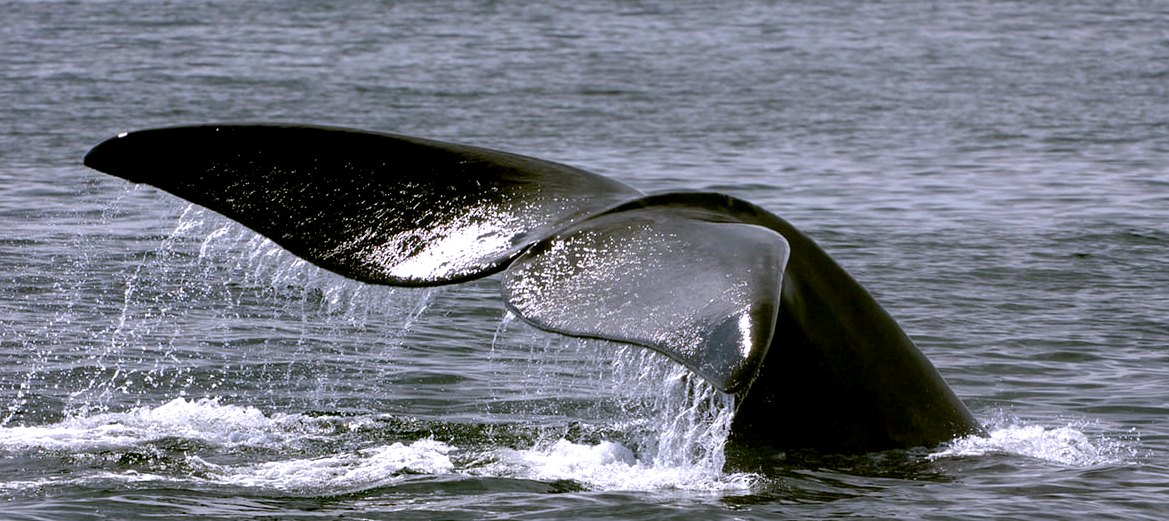
KULO
LUNA - Grace
and beauty, these giant fins propel the whale at considerable
speed over thousands of miles from feeding to breeding
grounds. Whales are just as much at risk from toxic plastic waste in our
oceans as humans from eating marine produce. The only
difference is that the whales did not put it there. It is not
their fault. It is our fault and the fault of our governments
for allowing it to be dumped at sea. Most governments are
doing nothing about removing it from the sea. They are content
to limit plastic production on land - as per the Agreement of
the G20 at
Hamburg in
2017.
If
you think that our heads of state should be doing more, please
support us in any way that you can to make Kulo Luna a lasting
message for those elected to represent us, to actually carry
out the wished of the people.
Funding
an idea for a book, script or movie is a daunting prospect.
Crowd funding is unlikely to raise sufficient monies to make a
quality movie and this subject matter deserves the best
available technology if it is to have an impact as an ocean
awareness film.
A
combination of crowd funding and arts council or other grants
may provide the impetus to kick-start the process, ending with
a script that is of a high enough caliber to interest first,
an agent, and secondly a film company.
Typically,
film ideas take a lot of development in formats that are not
acceptable to studios before they secure funding to get them
converted into a format that the industry recognises. For more
on how this is achieved see our page on Script
Writing.
WHAT
IS CROWD FUNDING ?
Crowdfunding is a way of raising finance by asking a large number of people each for a small amount of money. Traditionally, financing a business, project or venture involved asking a few people for large sums of money. Crowdfunding switches this idea around, using the internet to talk to thousands – if not millions – of potential funders. Typically, those seeking funds will set up a profile of their project on a website such as this one. They can then use social media, alongside traditional networks of friends, family and work acquaintances, to raise money.
People invest simply because they believe in the cause. Rewards can be offered (often called reward crowdfunding), such as acknowledgements on an album cover, tickets to an event, regular news updates, free gifts and so on. Returns are considered intangible. Donors have a social or personal motivation for putting their money in and expect nothing back, except perhaps to feel good about helping the project.
A variety of crowdfunding platforms have emerged to allow ordinary web users to support specific philanthropic projects without the need for large amounts of money. GlobalGiving allows individuals to browse through a selection of small projects proposed by nonprofit organizations worldwide, donating funds to projects of their choice. Microcredit crowdfunding platforms such as Kiva (organization) facilitate crowdfunding of loans managed by microcredit organizations in developing countries. The US-based nonprofit Zidisha applies a direct person-to-person lending model to microcredit lending for low-income small business owners in developing countries.
DonorsChoose.org, founded in 2000, allows public school teachers in the United States to request materials for their classrooms. Individuals can lend money to teacher-proposed projects, and the organization fulfills and delivers supplies to schools. There are also a number of own-branded university crowdfunding websites, which enable students and staff to create projects and receive funding from alumni of the university or the general public. Several dedicated civic crowdfunding platforms have emerged in the US and the UK, some of which have led to the first direct involvement of governments in crowdfunding. In the UK, Spacehive is used by the Mayor of London and Manchester City Council to co-fund civic projects created by citizens. Similarly, dedicated humanitarian crowdfunding initiatives are emerging, involving humanitarian organizations, volunteers and supports in solving and modeling how to build innovative crowdfunding solutions for the humanitarian community. Likewise, international organizations like the Office for the Coordination of Humanitarian Affairs (OCHA) have been researching and publishing about the topic.
One crowdfunding project, iCancer, was used to support a Phase 1 trial of AdVince, an anti-cancer drug in 2016.
A number of platforms have also emerged that specialize in the crowdfunding of scientific projects, such as experiment.com, and The Open Source Science
Project. In the scientific community, these new options for research funding are seen ambivalently. Advocates of crowdfunding for science emphasize that it allows early-career scientists to apply for their own projects early on, that it forces scientists to communicate clearly and comprehensively to a broader public, that it may alleviate problems of the established funding systems which are seen to fund conventional, mainstream projects, and that it gives the public a say in science funding. In turn, critics are worried about quality control on crowdfunding platforms. If non-scientists were allowed to make funding decisions, it would be more likely that "panda bear science" is funded, i.e. research with broad appeal but lacking scientific substance. Initial studies found that crowdfunding is used within science, mostly by young researchers to fund small parts of their projects, and with high success rates. At the same time, funding success seems to be strongly influenced by non-scientific factors like humor, visualizations, or the ease and security of payment.
Crowdfunding campaigns provide producers with a number of benefits, beyond the strict financial gains. The following are non financial benefits of
crowdfunding:-
Profile – a compelling project can raise a producer's profile and provide a boost to their reputation.
Marketing – project initiators can show there are an audience and market for their project. In the case of an unsuccessful campaign, it provides good market feedback.
Audience engagement – crowdfunding creates a forum where project initiators can engage with their audiences. An audience can engage in the production process by the following progress through updates from the creators and sharing feedback via comment features on the project's crowdfunding page.
Feedback – offering pre-release access to content or the opportunity to beta-test content to project backers as a part of the funding incentives provides the project initiators with instant access to good market testing feedback.
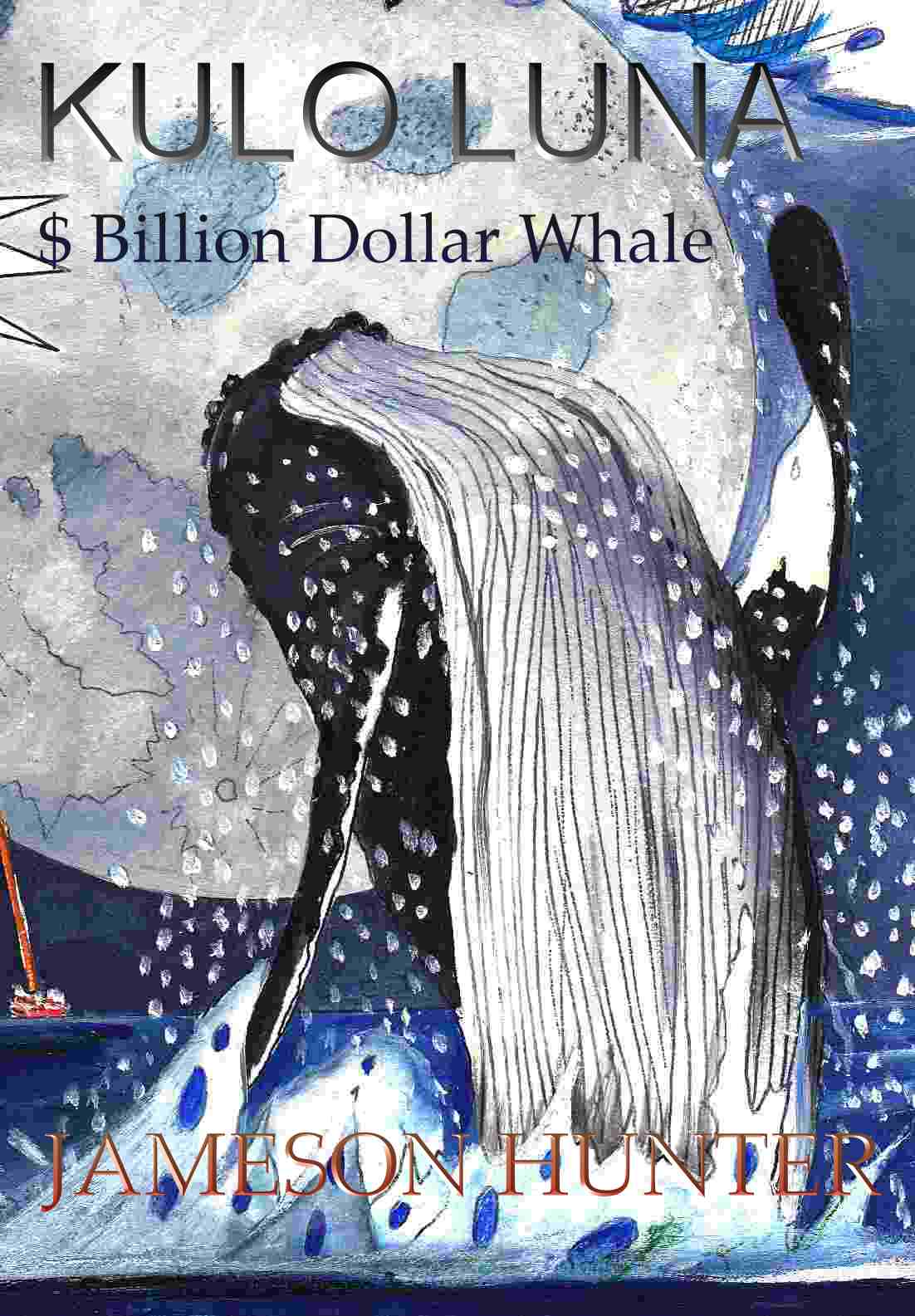
KULO
LUNA - Is the story of a giant humpback whale and her
young friend Kana who is killed by pirate whalers in the south
pacific ocean. Enraged by the death of Kana, Kulo
attacks the pirate ship, finally sinking it, but getting
herself wounded in the process.
On
hearing of the sinking of one of their suppliers, a Japanese cartel put a $multi-million dollar bounty on her
head, when another whaling ship gives chase. Before not too
long the media hear of the hunt and betting begins all around
the world. At this point our hero, John
Storm, abandons a
solar boat race to try and help the whale where his boat, the
Elizabeth Swan, is not far away from the last sighting.
John
rescues Kulo from being eaten by sharks, but that is just the
beginning of their adventure, as the pirates whalers close in
for the kill........ Copyright book cover design © Jameson
Hunter Ltd. All rights reserved. The Kulo Luna story is the
subject of an exclusive license to the Foundation, expressly
for the purposes of raising ocean awareness and helping to
fund research into ways of beating ocean waste.
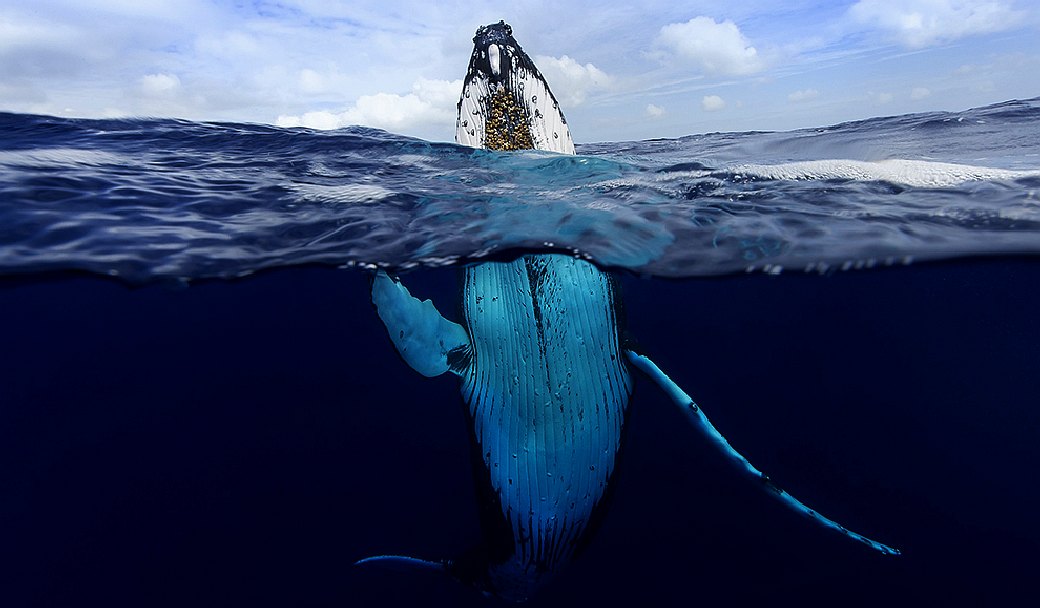
MARINE
LIFE - This humpback whale is one example of a magnificent
animal that is at the mercy of human
activity. Humans are for the most part unaware of the harm their fast-lane
lifestyles are causing. We aim to change that by doing all we
can to promote ocean
literacy. The Kulo Luna story is one of our initiatives to
promote ocean issues.
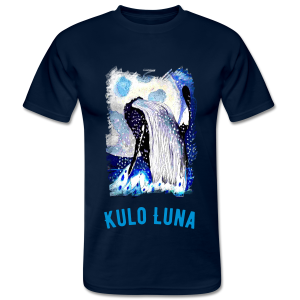 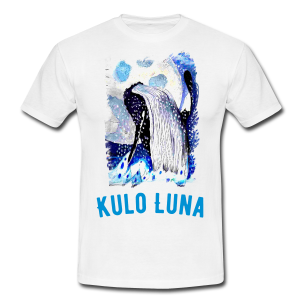
MERCHANDISE - These
cool T-shirts will be available when the story is released, to
help raise ocean awareness. Copyright book cover and clothing
design © Cleaner Ocean Foundation
November 30 2018. All rights reserved.
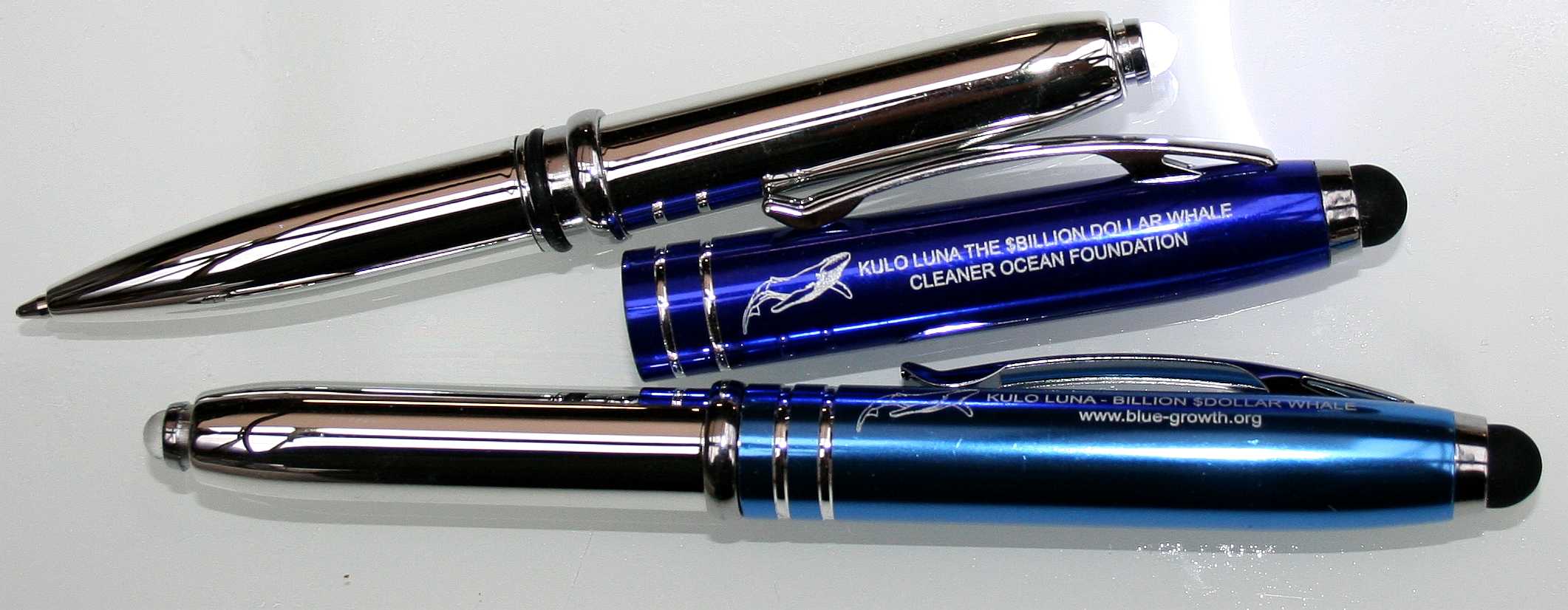
Humpback
whale pens with a built in LED torch. These beautiful writing
instruments are to complement our ocean awareness efforts and
help us raise funds to get a well written script for a Kulo
Luna film proposal. They will be available in royal navy and
ocean blue colours as per these samples. Copyright © Jameson Hunter
December 16 2018.
This
website is provided on a free basis as a public information
service. Copyright © Cleaner
Oceans Foundation Ltd (COFL) (Company No: 4674774)
2019. Solar
Studios, BN271RF, United Kingdom.
COFL
is a charity without share capital.
|




